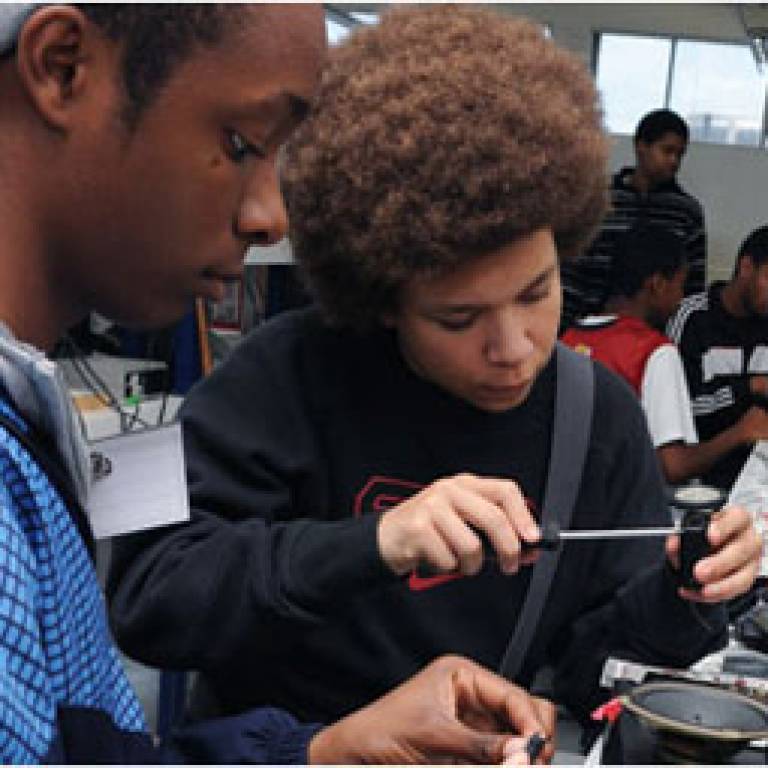London teens command robots with their mobile phones
15 August 2011
Between 15th and 19th August, 30 talented students from disadvantaged backgrounds will be taking part in the 'Generating Genius' programme at UCL's Faculty of Engineering.
 The 13-15 year-olds will learn about the latest virtual reality technology
in UCL Computer Science's state-of-the-art Virtual
The 13-15 year-olds will learn about the latest virtual reality technology
in UCL Computer Science's state-of-the-art Virtual
Environment labs, and discover how to control robots using Android phones supplied by Google, sponsors of this year's programme.
Generating Genius is an out-of-school programme that aims to develop talent in groups traditionally under-represented in higher education, particularly in science subjects. Of their initial group of boys from an African-Caribbean background, 94% won places at Russell Group universities like UCL. This year, with additional funding from Google, the project has been extended to also include girls of African-Caribbean origin.
Students on the scheme participate in summer schools where they work on real, challenging science, hands-on engineering projects, and compete in 'Apprentice' style competitions. During their visit to UCL, arranged by computer science researcher Dr. Wole Oyekoya, students will develop programming skills through week-long tasks. Split into teams, the young people will use motion-captured information like that used in computer-generated films such as Avatar to construct new behaviours for characters in a virtual world. At the same time, they will build their own custom Lego Mindstorms robots, and use Google Android phones to control them via Bluetooth.
The best projects, as judged by a panel of experts including Google engineers and UCL's Dean of Engineering, will receive prizes - but all students will win a taste of the university experience and will be stretched academically, improving their skills for a future career in high-level science or engineering. UCL Engineering is proud to work with Generating Genius on this project to improve social mobility, as part of its on-going commitment to fair access to education for all.
Dr Sewell, director of the Generating Genius programme, said: "This is a fantastic opportunity we've been given by UCL. Usually people are unwilling to let younger students use top-of-the-range technology, but UCL has opened up some excellent resources to us. They are also to be commended for recognising that to provide the scientists the country needs, children need to be engaged at a young age."
The Dean of Engineering at UCL, Professor Anthony Finkelstein, said: "As engineers we want to change the world. We want to find ways of addressing problems such as hunger, disease, chronic illness and poor infrastructure. To do this we need talent. Young people with the motivation and ability to face up to these problems and find ways in which science and technology can help to overcome them. They are a rare and valuable resource. Generating Genius is an inspirational scheme that can help us find that talent and nurture it. We hope the attendees will benefit from the event - we are sure that we will."
-Ends-
Media contact: Dave Weston
Image: Students take part in a Generating Genius engineering workshop
Links:
 Close
Close

